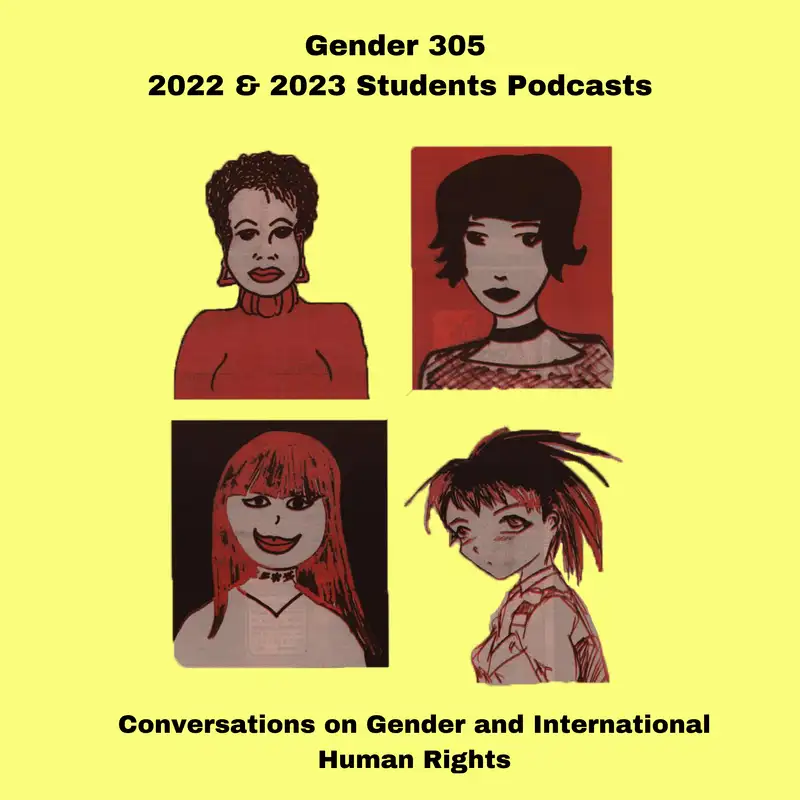Gender-based discrimination in the Arab Emirates
The overarching subject of this podcast is gender inequality in the United Arab Emirates
(UAE), focusing on the question: to what extent can gender inequality organizations function in
places of extreme inequality? We chose the United Arab Emirates specifically due to our close
connection with someone who lives there. All of our group members are living in Canada where
gender equality is more prevalent and widespread than in the Middle East. It is sometimes
challenging to understand what other people in the world, specifically those in the UAE, face
and the different challenges that they encounter daily.
Women in the UAE face challenges in many aspects of their lives; gender inequality is
multifaceted. Gender biases can hinder a woman’s career progression, and present her with
barriers in accessing decision-making roles. Laws and regulations also restrict women’s
autonomy. Often, women need a male guardian or male consent when making decisions such as
marriage. Domestic abuse is also an on-going concern. Women who experience abuse may find
challenge seeking help due to legal barriers, social stigmatization and lack of comprehensive
support systems.
This podcast discusses the gender inequality landscape in the UAE, including the cultural and
historical factors that have created it. We will discuss the UAE’s legal framework as it is a major
influence on discrimination against women. Gender inequality is a pervasive global issue that
affects the social, economic and political lives of individuals, the UAE sheds light on how
inequality manifests in different societies and throughout different cultures. This podcast looks
to provide awareness and education about the laws and the deep-rooted history that has
created the discrimination that women in the UAE experience throughout their lives, and how
this affects those advocating for change.
This topic has been chosen to broaden our understanding of the feminist movement and the
shape that it takes in countries where gender inequality is far more prevalent than what we
experience day-to-day in Canada. We have chosen to examine the United Arab Emirates, both
for its low ranking in gender equality, as well as for our personal connection to people living in
the UAE. Students ground their analysis in a non-Eurocentric perspective that approaches the
material within the cultural and social context of the UAE. In evaluating the UAE’s response to
CEDAW using feminist theory, Students argue that much of this inequality comes from
legislation that is inherently discriminatory to women. To explore and evaluate this statement,
students dissected specific articles that, even after amendment in response to CEDAW, continue
to discriminate against women.
(UAE), focusing on the question: to what extent can gender inequality organizations function in
places of extreme inequality? We chose the United Arab Emirates specifically due to our close
connection with someone who lives there. All of our group members are living in Canada where
gender equality is more prevalent and widespread than in the Middle East. It is sometimes
challenging to understand what other people in the world, specifically those in the UAE, face
and the different challenges that they encounter daily.
Women in the UAE face challenges in many aspects of their lives; gender inequality is
multifaceted. Gender biases can hinder a woman’s career progression, and present her with
barriers in accessing decision-making roles. Laws and regulations also restrict women’s
autonomy. Often, women need a male guardian or male consent when making decisions such as
marriage. Domestic abuse is also an on-going concern. Women who experience abuse may find
challenge seeking help due to legal barriers, social stigmatization and lack of comprehensive
support systems.
This podcast discusses the gender inequality landscape in the UAE, including the cultural and
historical factors that have created it. We will discuss the UAE’s legal framework as it is a major
influence on discrimination against women. Gender inequality is a pervasive global issue that
affects the social, economic and political lives of individuals, the UAE sheds light on how
inequality manifests in different societies and throughout different cultures. This podcast looks
to provide awareness and education about the laws and the deep-rooted history that has
created the discrimination that women in the UAE experience throughout their lives, and how
this affects those advocating for change.
This topic has been chosen to broaden our understanding of the feminist movement and the
shape that it takes in countries where gender inequality is far more prevalent than what we
experience day-to-day in Canada. We have chosen to examine the United Arab Emirates, both
for its low ranking in gender equality, as well as for our personal connection to people living in
the UAE. Students ground their analysis in a non-Eurocentric perspective that approaches the
material within the cultural and social context of the UAE. In evaluating the UAE’s response to
CEDAW using feminist theory, Students argue that much of this inequality comes from
legislation that is inherently discriminatory to women. To explore and evaluate this statement,
students dissected specific articles that, even after amendment in response to CEDAW, continue
to discriminate against women.
